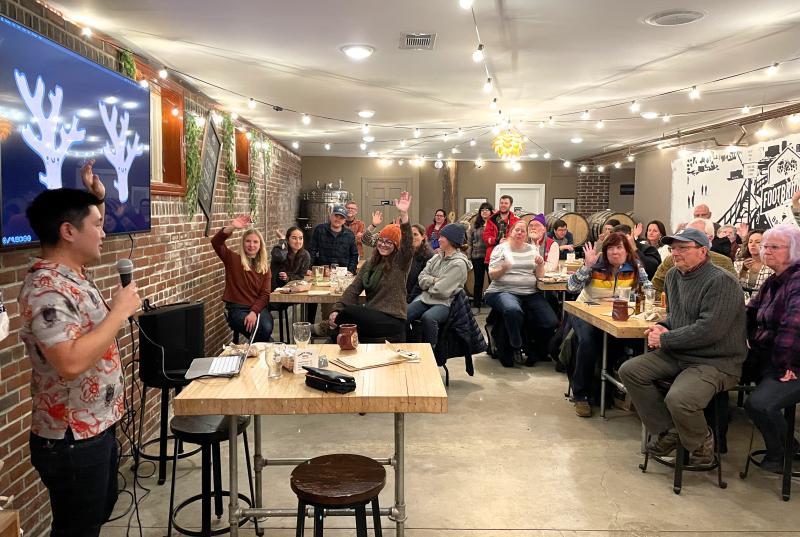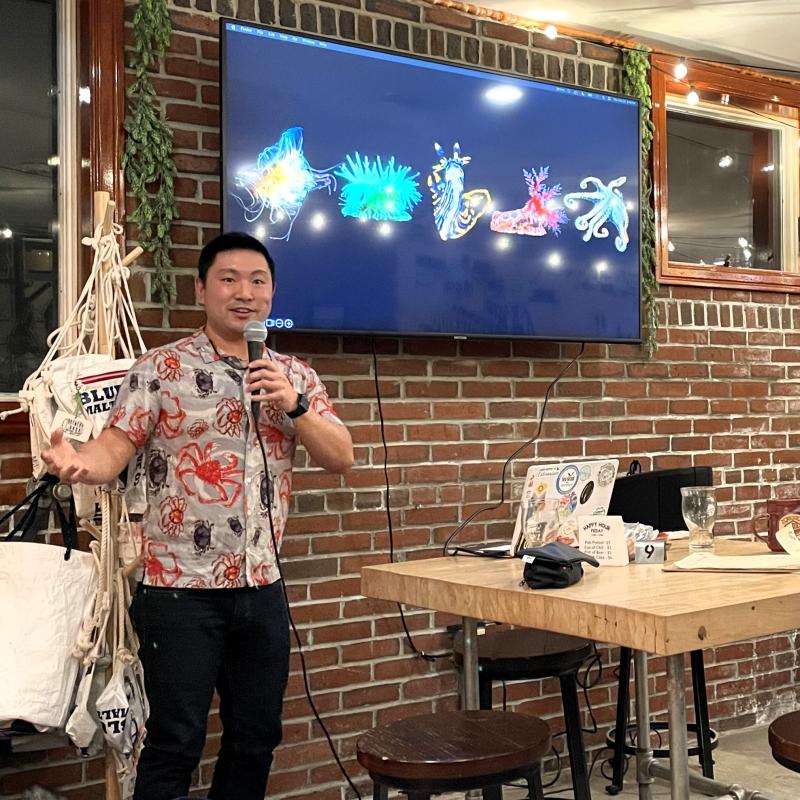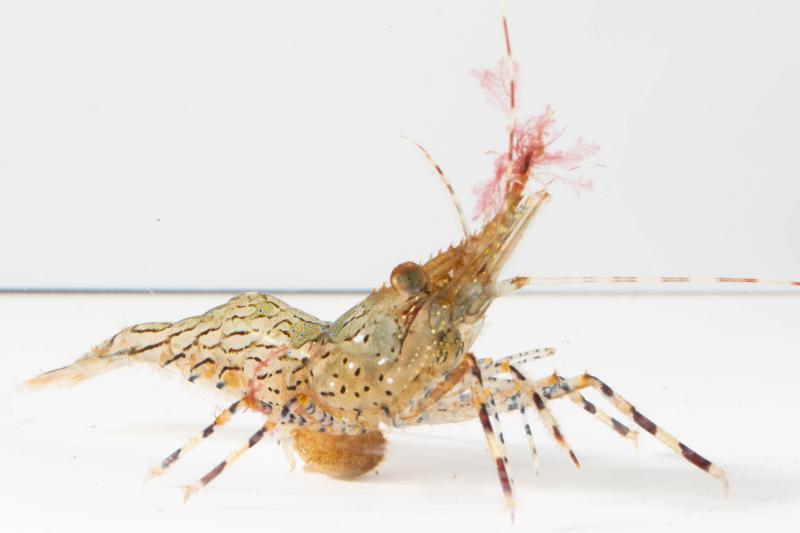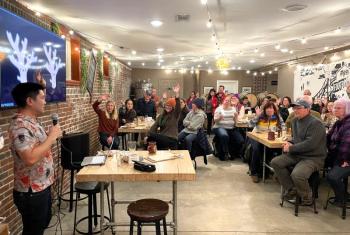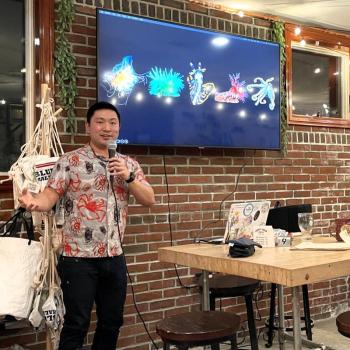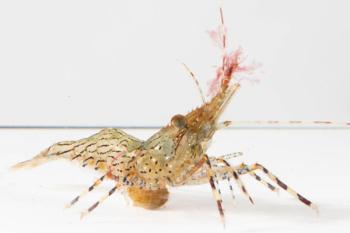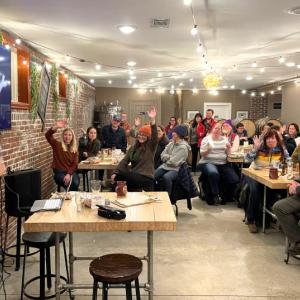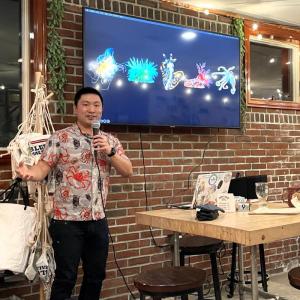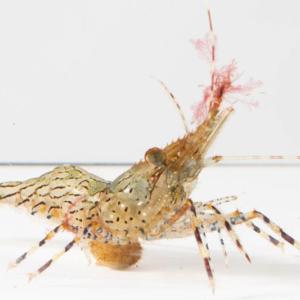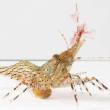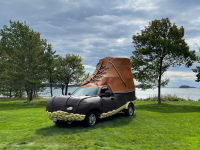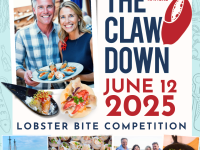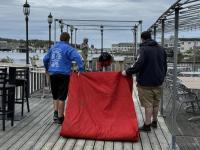Zombie ants and imposter eggs
Reyn Yoshioka wants people to like parasites, but he’ll settle if they are at least interested. As it turns out, many are. A standing-room only crowd showed up for his talk, “Mini Marine Monsters,” at Footbridge Brewery Feb. 22. There, Yoshioka presented creepy, weird and otherworldly parasites that captured the audience as well as they do their hosts.
“I really just hope for more love for the things that we often don't care about in marine ecosystems, just greater appreciation across the board for marine life and its diversity.” Yoshioka, a disease ecologist at Bigelow Laboratory, said. “A more selfish hope is that folks find parasites cool and think about how we might interact with them and then also how they serve important roles in their ecosystems.”
Yoshioka’s favorite parasite is the barnacle rhizocephalan. He explained they attach where the crabs would normally have eggs. In a strange turn of manipulation, the crab is compelled to take care of the parasite as it would its brood pouch. However, the parasite feeds off the crab the whole time. It can sterilize the crab, and the energy that would have been spent on caring for its real young is used on the insidious intruder.
What happens if you are a male crab and get infected, an audience member called out. “Uh oh?”
“Uh oh, indeed,” Yoshioka answered. Once infected, a male crab will start to develop a u-shaped abdomen, a characteristic of a female crab. Compelled by the parasite, it will also care for the imposter as its own, but males should never have young to begin with.
“This is a feminization process that is driven by a parasite,” Yoshioka said. “Truly zombies that are vastly changed by their parasites”
Yoshioka presented several other fascinating yet terrifying examples. Cymothoa exigua eats away at a clown fish’s tongue, siphoning nutrients, and becomes the tongue. The fungus Ophiocordyceps unilateralis infects ants. It fools other ants into thinking its host is normal, a herculean task considering the interconnected nature of ant colonies. Eventually, the parasite compels its “zombie” host to climb a height optimal for dropping spores so it can infect as many unsuspecting hosts as possible.
Despite the horror stories, Yoshioka said he wants to convince people parasites aren't all that bad. He explained that humans are unlikely to be infected by marine parasites because we are too evolutionarily different from their typical hosts. This is especially true when seafood is properly prepared, and Yoshioka said he is an avid sushi eater.
Parasites are part of many organisms’ diets. “This is a vast amount of nutritional value and if we aren't recognizing that, we’re missing out on a lot,” he said.
For example, he said the horsehair worm infects crickets, eventually forcing them into water. He cited a study in Japan that said 60% of juvenile trout diets are made up of crickets that get drowned, supporting important fish populations. “Look at these parasites being conservationists,” he said.
On a larger scale, Yoshioka said parasites are a critical part of a healthy ecosystem. He said parasites pop up all over the tree of life and, in fact, parasitism is the most common way of making a living in biology. Perhaps more important is their role. He explained one of the major functions of parasite population and disease control. Without them, some would run rampant. “An ecosystem without parasites or pathogens is not a healthy one,” Yoshioka said.
The future for parasites is mixed in the face of climate change. Yoshioka said microscopic species tend to fair better in warmer conditions because their metabolism and reproductive cycles increase. In addition, many animals easily get stressed when temperatures rise, increasing the possibility of infection. However, changing environmental conditions could also mean the loss of species, which is bad for any ecosystem.
“When you start losing species, you lost their parasites. You often don't think about that. The more species you lose, it’s kind of a cascade.”
The talk was the first in an informal series called “Ocean on Tap,” and the next is scheduled for March 21. Yoshioka said it’s a great way to connect with people outside the lab and to share his work. “... We don't get to often share things that we're really interested in or things that we care about in ways that are (hopefully) compelling to the community. So being able to come here and talk about things that I'm interested in, things that we study at Bigelow, in the place that we're doing a lot of the work, is really important.”

